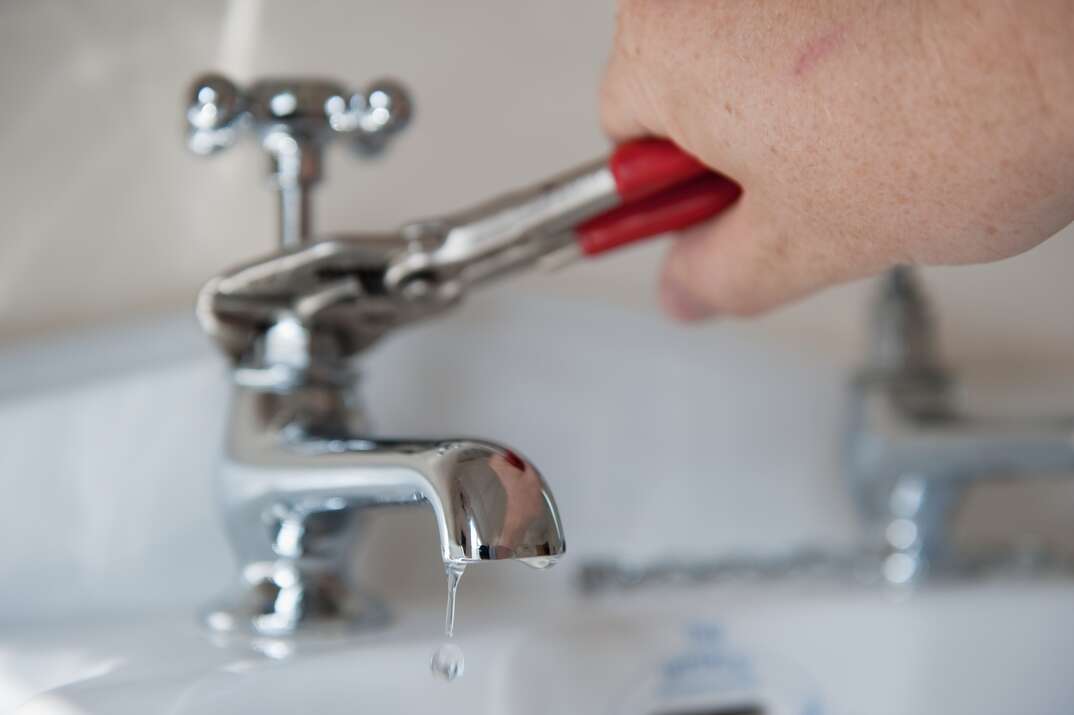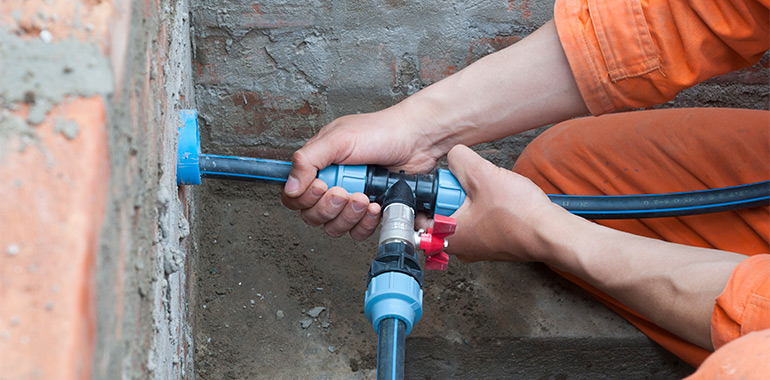Here down the page you can discover some decent tips concerning Why Do My Pipes Make Noises.

To detect loud plumbing, it is very important to figure out initial whether the undesirable noises happen on the system's inlet side-in other words, when water is transformed on-or on the drainpipe side. Sounds on the inlet side have actually differed reasons: too much water stress, used shutoff and also tap components, poorly linked pumps or other home appliances, inaccurately positioned pipeline bolts, as well as plumbing runs consisting of a lot of tight bends or other restrictions. Noises on the drainpipe side generally originate from bad place or, as with some inlet side sound, a format having limited bends.
Hissing
Hissing sound that happens when a faucet is opened somewhat typically signals excessive water pressure. Consult your neighborhood public utility if you think this issue; it will be able to inform you the water stress in your location as well as can install a pressurereducing valve on the inbound supply of water pipe if necessary.
Thudding
Thudding sound, usually accompanied by trembling pipes, when a tap or home appliance valve is turned off is a problem called water hammer. The noise and resonance are triggered by the reverberating wave of stress in the water, which all of a sudden has no area to go. Often opening a shutoff that discharges water promptly into an area of piping consisting of a restriction, joint, or tee fitting can generate the exact same condition.
Water hammer can normally be cured by mounting fittings called air chambers or shock absorbers in the plumbing to which the issue valves or taps are attached. These devices permit the shock wave created by the halted flow of water to dissipate airborne they contain, which (unlike water) is compressible.
Older plumbing systems might have brief vertical areas of capped pipeline behind walls on faucet competes the same function; these can at some point fill with water, minimizing or damaging their effectiveness. The treatment is to drain the water supply entirely by shutting off the primary water valve as well as opening up all taps. Then open the primary supply shutoff and close the faucets individually, beginning with the tap nearest the valve as well as finishing with the one farthest away.
Chattering or Shrieking
Extreme chattering or screeching that happens when a shutoff or faucet is switched on, which normally goes away when the fitting is opened completely, signals loosened or defective interior components. The remedy is to replace the shutoff or tap with a new one.
Pumps as well as devices such as washing equipments and also dishwashers can transfer electric motor sound to pipes if they are poorly connected. Link such products to plumbing with plastic or rubber hoses-never inflexible pipe-to isolate them.
Other Inlet Side Noises
Creaking, squeaking, scraping, breaking, and also touching usually are triggered by the growth or tightening of pipelines, usually copper ones providing hot water. The sounds occur as the pipes slide against loose bolts or strike neighboring residence framing. You can frequently identify the place of the trouble if the pipes are subjected; simply adhere to the audio when the pipelines are making noise. Most likely you will find a loose pipe wall mount or a location where pipelines exist so near flooring joists or various other mounting items that they clatter versus them. Affixing foam pipe insulation around the pipes at the point of contact should fix the problem. Make sure straps as well as hangers are safe as well as supply appropriate assistance. Where feasible, pipeline fasteners ought to be connected to enormous structural aspects such as foundation walls instead of to framing; doing so lessens the transmission of vibrations from plumbing to surfaces that can amplify and also move them. If connecting fasteners to framing is unavoidable, cover pipelines with insulation or various other durable material where they get in touch with fasteners, and sandwich the ends of brand-new bolts in between rubber washers when installing them.
Correcting plumbing runs that deal with flow-restricting limited or various bends is a last option that should be undertaken just after getting in touch with a proficient plumbing specialist. Sadly, this situation is fairly usual in older homes that may not have been constructed with interior plumbing or that have seen several remodels, specifically by novices.
Drainpipe Sound
On the drainpipe side of plumbing, the principal objectives are to get rid of surfaces that can be struck by dropping or rushing water and to shield pipes to contain inescapable noises.
In new building and construction, tubs, shower stalls, bathrooms, and wallmounted sinks and also basins need to be set on or versus resilient underlayments to lower the transmission of noise through them. Water-saving commodes as well as faucets are much less noisy than standard designs; mount them rather than older types even if codes in your location still permit making use of older fixtures.
Drains that do not run vertically to the cellar or that branch into horizontal pipeline runs supported at flooring joists or other mounting present specifically problematic sound problems. Such pipelines are large sufficient to radiate substantial vibration; they additionally carry substantial amounts of water, that makes the circumstance even worse. In new building and construction, specify cast-iron dirt pipes (the big pipes that drain pipes bathrooms) if you can manage them. Their massiveness has much of the sound made by water passing through them. Likewise, stay clear of routing drains in walls shown rooms as well as areas where people collect. Wall surfaces including drainpipes must be soundproofed as was described earlier, making use of double panels of sound-insulating fiber board and also wallboard. Pipes themselves can be covered with unique fiberglass insulation made for the function; such pipelines have an impervious plastic skin (occasionally including lead). Outcomes are not constantly acceptable.
If Your Plumbing is Making These Sounds, There’s a Problem
A Bang or Thump When You Turn Off a Faucet
If a loud bang or thump greets you each time your turn off running water, you likely have a water hammer. A water hammer occurs when the water velocity is brought to a halt, sending a shock wave through the pipe. It can be pretty jarring — even worse, damaging to your plumbing system. All that thudding could loosen connections.
Strange Toilet Noises
You’re so familiar with the sounds your toilet makes that your ears will be attuned to anything out of the ordinary. Fortunately, most unusual toilet noises can be narrowed down to just one of several problems.
Foghorn sound:
Open the toilet tank Flush the toilet When you hear the foghorn noise, lift the float to the top of the tank If you’re ambitious, you can remove the ballcock valve and disassemble it to replace the washer. Or you can more easily replace the ballcock valve entirely. This device is relatively inexpensive and available at most any hardware store.
Persistent hissing:
The hissing following a flush is the sound of the tank filling. It should stop once the tank is full. But if the hissing continues, it’s likely because water is leaking out of the tank. The rubber flap at the bottom of the tank can degrade, letting water slip through and into the bowl. That’s why the tank is refilling continuously. Fortunately, this is an easy fix:
Cut the water to the toilet by closing the shutoff valve on the water supply line. Flush the toilet to drain the tank. Disconnect the flapper Attach the new flapper Gurgling or bubbling:
Gurgling or bubbling suggests negative air pressure in the drain line, likely resulting from a clog. As air releases, it causes the water in the toilet to bubble. This could either be a minor issue or a major one, depending on the clog’s severity. Clogs can be caused by toilet paper or more stubborn obstructions such as tree roots. If you can’t work out the clog with a plunger, contact a professional plumber for assistance because a clog of this magnitude could lead to filthy and unsanitary sewage backups in your sink bathtub.

Do you appreciate reading about Why Do My Plumbing Pipes Make A Knocking Noise? Write a short review below. We will be glad to listen to your opinion about this review. Hoping to see you back again before long. Loved our piece? Please share it. Let somebody else check it out. I take joy in reading our article about Why Do My Pipes Make Noises.
Visit Link